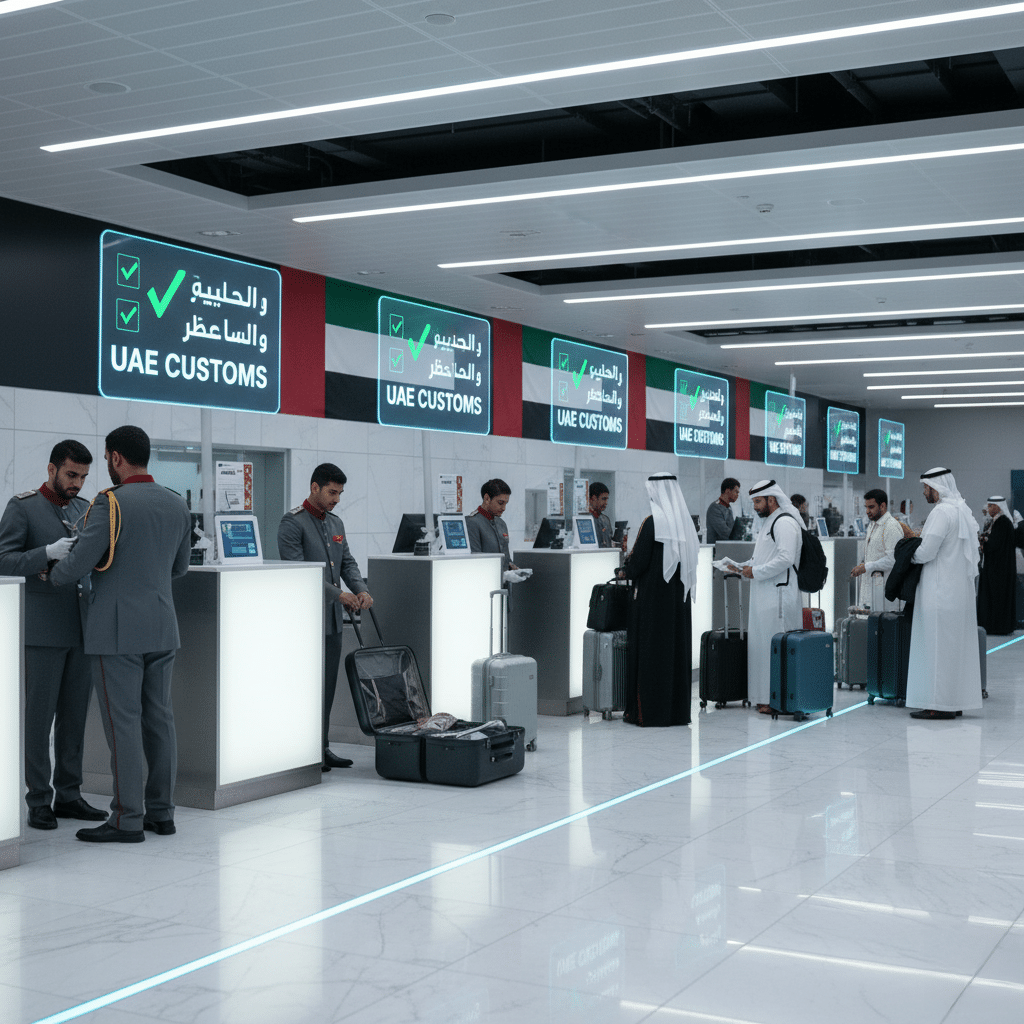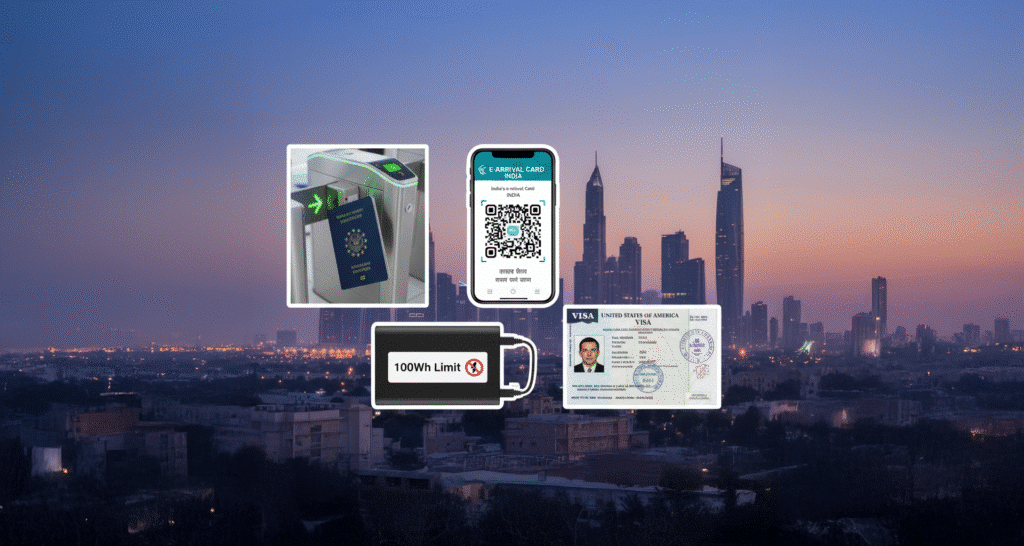As winter travel season arrives, a wave of new UAE travel regulations is reshaping how residents fly across the world. From stricter airline safety rules to new digital borders and visa costs, these updates could affect every trip booked this season.
Whether you’re flying to Europe, India, or the United States, here’s everything you need to know before you check in.
Europe Introduces Digital Borders
From 12 October 2025, the European Union’s Entry/Exit System (EES) replaces old-fashioned passport stamps with biometric records for non-EU visitors.
The new system logs each arrival and departure through facial recognition and fingerprints, creating a secure digital trail for every traveller entering the Schengen Zone for short stays of up to 90 days within any 180-day period.
Long-term visa holders and EU citizens are exempt, but UAE residents should expect slightly longer processing times as airports adjust. In the long run, the switch promises faster lanes and fewer errors once the system settles.
India Rolls Out e-Arrival Cards
Since 1 October 2025, India has required all foreign visitors—including those from the UAE—to submit an e-Arrival Card before flying. The new digital form replaces paper versions and must be completed online between 72 and 24 hours before departure through the Bureau of Immigration website, the Su-Swagatam app, or the official Indian visa portal.
Travellers receive a QR code to present on arrival, allowing faster clearance and less queueing. Indian citizens, Overseas Citizens of India (OCI), and residents are exempt.
For frequent UAE-India travellers, the process removes one of the last manual steps in the country’s border control.

UAE Airlines Tighten Power Bank Rules
Emirates, Etihad, and flydubai have introduced strict new rules on power banks. Devices exceeding 100 watt-hours (Wh) are now banned from all flights departing the UAE.
Smaller chargers are still allowed in hand luggage, but may not be used during the flight to charge phones or laptops. The change follows international aviation guidance designed to minimise lithium-battery fire risks.
Travellers should fully charge devices before boarding and double-check the watt-hour rating printed on each power bank.
US Adds a Visa Integrity Fee
Anyone applying for a US non-immigrant visa now faces an additional Dhs 900 ($250) Visa Integrity Fee, introduced 1 October 2025. It applies to tourists, students, and business visitors from countries outside the Visa Waiver Programme— including India, Pakistan, Bangladesh, and the Philippines—and comes on top of the standard Dhs 680 ($185) visa charge.
Travellers from waiver nations such as the UK, Qatar, Japan, Australia, and most EU members remain exempt. The new cost funds expanded background checks and digital security systems across US consulates.
Eco-Taxes and Local Levies Rising Worldwide
Several of the UAE’s most visited destinations are quietly adding small new taxes this winter:
- Thailand: Sustainable Tourism Fee ≈ Dhs 35 per traveller.
- Bali, Indonesia: New visitor levy ≈ Dhs 45 to support conservation.
- Malaysia & Japan: Revised airport departure taxes post-pandemic.
Though modest, these costs accumulate across multi-stop itineraries. Always check embassy and airline sites before finalising bookings to avoid on-arrival surprises.

How These Rules Affect UAE Flyers
For most travellers, these updates mean more preparation but fewer delays.
- Fill in digital forms early.
- Verify power-bank specifications.
- Budget for new visa and tourism fees.
- Allow extra airport time while systems adjust.
The payoff: greater safety, smoother borders, and cleaner documentation across multiple destinations.
Why Governments Are Acting Now
Air traffic is approaching pre-pandemic levels, and global regulators want to prevent congestion before the 2025-26 winter peak. Digital borders, safer flights, and transparent visa fees together create a smarter travel ecosystem—and the UAE, as one of the world’s busiest hubs, is right at its centre.
These updates also position the UAE as a model of compliance with evolving international aviation standards.
The Bottom Line for UAE Travellers
The rules of international travel are changing fast. October’s new regulations—from EU biometrics to India’s e-Arrival Card, UAE airline battery limits, and the US visa integrity fee—are designed to make flying safer and more efficient.
For UAE residents planning winter getaways, awareness is everything. Complete forms ahead, confirm airline limits, and stay alert to fresh advisories. A little preparation ensures your next trip remains stress-free and on schedule.
Key changes include the EU Entry/Exit System, India’s e-Arrival Card, the US Visa Integrity Fee, and UAE airlines’ power-bank restrictions.
No — only those over 100 Wh. Smaller ones are allowed in carry-on bags but can’t be used mid-flight.
An extra Dhs 900 ($250) is now charged on top of existing visa application fees.
To replace manual passport stamps with secure biometric records for non-EU visitors, improving speed and security.



